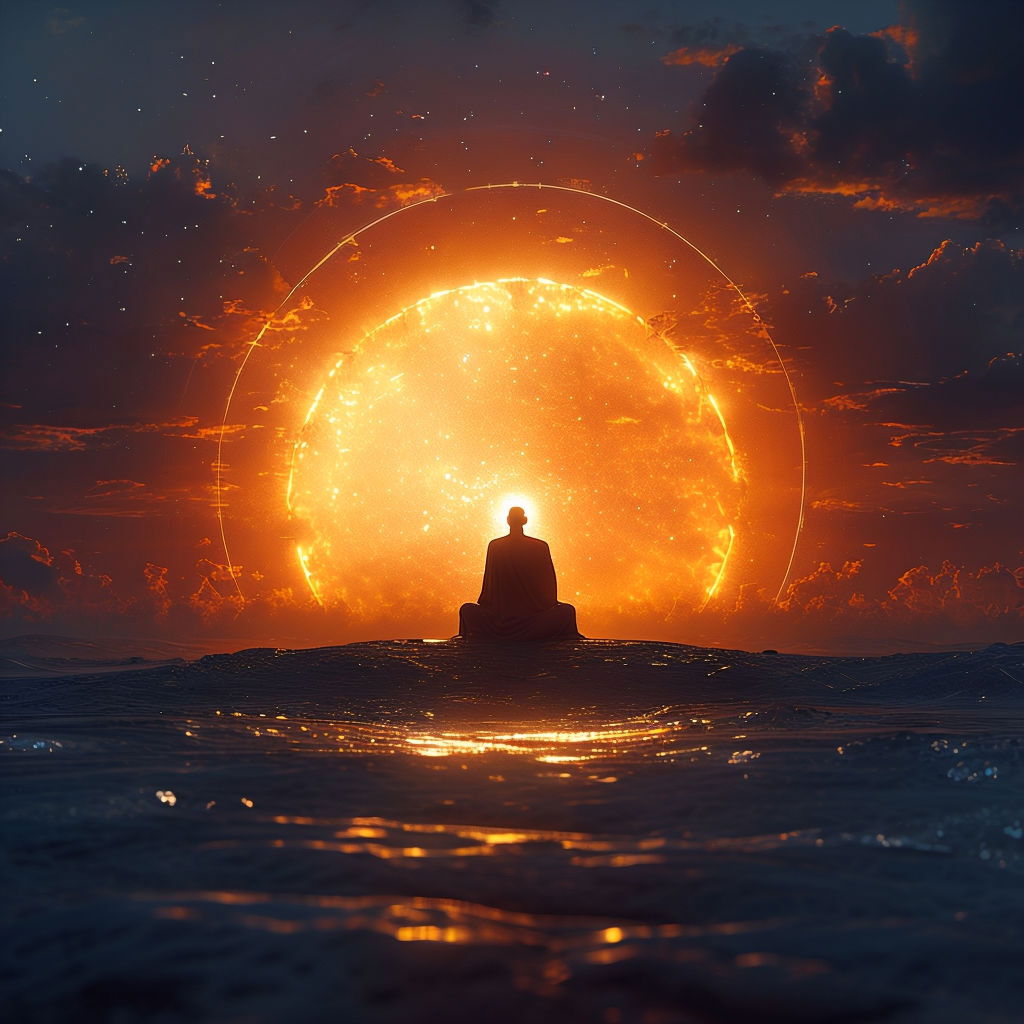The Divine Spark: Play as the Path to Gnosis

What if life, with all its swirling chaos, challenges, and seeming contradictions, was never meant to be taken so seriously? What if the key to unlocking the mysteries of existence lies not in grim asceticism but in embracing life as a form of play? Alan Watts, the renowned philosopher, proposed just that: Life is not work, but play; not a problem to be solved, but a cosmic dance to be enjoyed. In this light, the *divine spark*—the seed of spiritual knowledge—ignites within us when we stop trying to “figure it all out” and start playing with the world around us.
At the heart of this perspective is the concept of *gnosis*, the deep, intuitive understanding of spiritual truths that goes beyond rational knowledge. It’s the moment of awakening when you realize that life, far from being a stern and demanding test, is a grand, holographic game. And to win this game? You must learn how to play, laugh, and dance through its unfolding.
From childhood, we're conditioned to believe that play is trivial, something reserved for the immature and unproductive. Adulthood, we are taught, means getting serious, getting to work, and chasing something—whether it's success, knowledge, or spiritual enlightenment. But Watts reminds us that this mindset is precisely what blocks us from enlightenment. We get so wrapped up in working toward an abstract goal that we forget the simplicity of being alive, in the moment, with the ability to enjoy the dance of life.
Play, then, becomes an essential spiritual practice. In play, we are fully present, open to possibilities, and free from attachment to results. There’s no pressure to achieve; there’s only the joy of engagement. Watts likened work to play when approached with the right mindset: If we are fully present and invested in the task at hand, without anxiety about outcomes, then we transform the mundane into something sacred. The ordinary becomes the stage for the divine to express itself.
When we shift from a work-centered life to a play-centered existence, the veil of seriousness begins to lift, and with it, the door to *gnosis* opens. We see the world not as a machine to be controlled but as a living, breathing hologram—a cosmic dance in which we are both participants and observers.
In Hindu philosophy, the term *Lila* refers to the divine play of the universe. The gods, according to this worldview, engage in the act of creation not out of duty but out of joy, curiosity, and spontaneity. Reality itself is their playground, where the structures of time, space, and matter emerge and dissolve like waves on the ocean.
This idea resonates deeply with the notion of the holographic universe—the theory that reality is not solid or linear but a projection of consciousness. Every fragment of the universe contains the whole, and each moment of play allows us to glimpse the infinite complexity that underlies our existence. The *divine spark* resides in every atom, every thought, every breath, but it reveals itself most clearly when we allow ourselves to engage in the world playfully, without rigid expectations.
When we view the world through this lens of play, we recognize that life is not a battle to be won but a flow of experiences to be explored. The serious pursuit of spiritual knowledge is often weighed down by expectation and ego, but the playful mind sees through these illusions. It understands that the universe is far more intricate and beautiful than we can comprehend with linear logic—and it doesn't need to be. The cosmos invites us to dance with it, not to master it.
As modern science probes the nature of reality, it echoes ancient spiritual truths: Reality may indeed be holographic, and consciousness, not matter, could be the foundation of existence. In a holographic universe, each part reflects the whole, just as each individual reflects the divine source. This fractal structure means that the divine spark is not separate from us—it is *us*.
This realization brings us to *gnosis*, a form of knowledge that transcends the intellect. It is an intuitive, direct understanding of our unity with the divine. To access this state, we must become as children once again—playful, curious, and open. When we approach life with a sense of wonder, the artificial boundaries between the self and the cosmos dissolve, and we experience a profound connection to the whole.
In moments of play, we step outside the rigid frameworks of time and identity. We forget our worries about who we are or what we need to accomplish. We lose ourselves in the flow of the game, whether it's a physical activity, an artistic endeavor, or simply the playful exchange of ideas. In these moments, the *divine spark* within us shines brightly, and we access *gnosis*—the deep knowing that life is far more than it appears on the surface.
Alan Watts often spoke of life as a dance, one in which we are not meant to struggle against the rhythm but to move with it gracefully. Enlightenment, in his view, is not about transcending the world or escaping its challenges; it’s about embracing the world as it is, with all its contradictions and paradoxes. It’s about seeing life as a divine play, where everything—every joy, every sorrow, every success, and every failure—is part of a cosmic joke that we are invited to laugh at.
The true wisdom of enlightenment lies in recognizing that there is no finish line, no ultimate goal to strive for. The point of life is life itself. When we can look at the world with a sense of humor, when we can laugh at our own illusions and dance with the uncertainties of existence, we tap into a profound sense of freedom. This is the freedom that comes with *gnosis*—the freedom to play in the vast hologram of the cosmos, knowing that we are both the players and the game.
The *divine spark* is ever-present, waiting to be recognized, not through rigorous striving but through playful engagement with life. When we embrace play as a spiritual practice, we tap into the deep well of *gnosis*, experiencing the world not as a puzzle to be solved but as a living, breathing dance of energy and light.
Alan Watts encouraged us to let go of our obsession with work and seriousness and to embrace the joyous, playful nature of existence. In doing so, we awaken to the divine spark within us and realize that life, in all its complexity, is a cosmic game—a grand, holographic play that invites us to join in with laughter, curiosity, and freedom.
After all, the universe is playing with us. Shouldn't we play along?
HOLOSOPHY AS PLAY!
